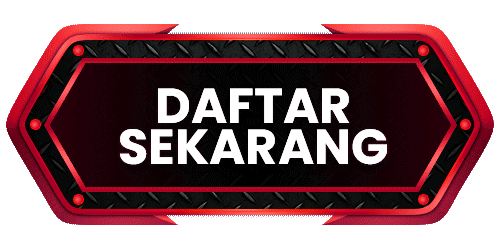RAFIGAMING
RAFIGAMING >> Bandar Slot777 Online & Slot Gacor Online Terbaru 2024
RAFIGAMING >> Bandar Slot777 Online & Slot Gacor Online Terbaru 2024
Couldn't load pickup availability
Situs Rafigaming sebagai penyedia resmi permainan slot777 dan sekaligus bandar slot gacor online terbaru 2024 dimana pemain bisa merasakan game yang termutakhir dan sangat gampang untuk meraih kemenangan jackpot besar.
RAFIGAMING >> Situs Daftar Slot Gacor Ini Hari & Agen Slot Maxwin Anti Rungkad
Rafigaming sebagai penyandang situs slot777 gacor x1000 maxwin & daftar slot online anti rungkad di Asia. Para member slot gacor pasti akan menelusuri situs slot anti rungkad x1000. Oleh sebab itu slot gacor Rafigaming adalah solusi buat slotter yang trauma dengan kekalahan teruk dalam bermain slot. Rafigaming slot maxwin anti rungkad memiliki akun vip slot untuk setiap member yang mendaftar & bisa di buktikan langsung.
Setelah mendapatkan akun slot VIP dari situs Rafigaming, maka semua permainan bandar slot777 yang dimainkan akan sangat gampang untuk menang karena memiliki winrate diatas rata rata 98%. Sungguh fantastis situs slot maxwin dan bandar slot gacor hari ini di Rafigaming. Di samping itu slot gacor hari ini juga memberikan kemudahan para member setia dengan fitur metode pembayaran yang luar biasa cepat dan terhindar dari kekalahan telak sesuai dengan slogan "Slot Anti Rungkad".
Sensasional x500 Slot Gacor Mudah Jackpot Rafigaming
Bandar slot gacor atau slot777 sensasional x500 Rafigaming sudah menjadi andalan para slotter mania yang ingin menambah pemasukan dengan bermain slot, situs Rafigaming merupakan solusi satu-satunya dibandingkan dengan situs-situs lain. Bandar Rafigaming juga menyediakan fitur RTP Gacor Hari ini kepada setiap member untuk dapat menganalisa game slot mana yang lagi gacor. Berikut daftar game slot anti rungkad yang paling diminati member Rafigaming:
- Slot777 Gacor Gates Of Olympus
- Slot Anti Rungkad Sweet Bonanza
- Slot777 Maxwin Wild Bounty Show Down
- Slot Gacor Anti Rungkad Aztec Bonanza
- Slot777 VIP Gacor Wild Bandito
- Slot Maxwin Anti Rungkad Mahjong Ways 2
- Slot777 Vip Anti Rungkad Starlight Princess
Slot Demo Pragmatic Gacor Indonesia
Slot Demo Pragmatic Play Provider Gacor Terbaik di Indonesia bisa dimainkan dengan geratis tanpa harus menyetorkan deposit atau harus daftar akun slot terlebih dahulu. Terlebih untuk para penggemar game slot gacor online, Bandar Slot demo ini sangat lah cocok buat kalian putar dan mainkan agar bisa menjadi tolak ukur game slot mana yang sedang on fire. Bandar Pragmatic Slot Demo Play memfasilitasi game slot777 gratis yang menggunakan slot uang rupiah asli buat kalian bermain terlebih dahulu sebelum mencoba melakukan pendaftaran dan melakukan deposit. Hanya perlu mendownload aplikasi slot pragmatic apk ios & android kalian sudah bisa merasakan sensasi bermain slot gacor terpopuler yang bisa memberikan keuntungan tanpa batas.
Perlu diakui tidak semua game slot itu bisa sukses mengambil simpati para pemain slot di Indonesia, karena tidak semua game slot tersebut asyik baik dari winrate maupun tampilan yang memukau buat pemain. Type permainan atau variasi slot masing masing memiliki karakteristik khusus serta keunikan special yang di cari para pemain untuk mendapatkan jackpot maxwin. Teruntuk agen slot yang konon katanya mampu memberikan kemenangan tiap member yg bermain slot gacor di Indonesia dengan berbagai jenis mesin slot atau provider slot yang resmi di Indonesia.
Jika anda baru saja memulai bermain permainan slot777, sangat dianjurkan untuk bermain pada Slot Demo Online tersebut agar bisa menyadari dan paham, yang manakah permainan slot yang nantinya bisa dimainkan.
Akun Slot Demo Pragmatic Online Terlengkap
Akun slot demo online pragmatic Play adalah salah satu provider/vendor paling ternama di dunia akan sebutan game slot gacor maxwin dari sekian banyak vendor slot. Permainan slot keren, seru dan cukup bervariatif di hadirkan semua di situs slot demo uang asli kami. Dari berbagai jenis penyedia yang bekerja sama dengan situs judi slot 777 resmi ini ada dari cq9 slot, joker123, habanero, slot pragmatic dan lain sebagainya. Di situs Slot Demo kami, anda memiliki pilihan ratusan model permainan slot dan beberapa pilihan vendor ternama dan sudah legendaris.
Berbagai alasan utama kenapa permainan slot777 online dari Pragmatic Play sangat terkenal meliputi tampilan gambar full HD yang menarik serta tidak membosankan. Permainan Online situs slot 777 oleh masing masing provider slot adalah mampu memberikan fitur slot demo dengan tujuan agar pemain mencoba terlebih dahulu tanpa harus langsung melakukan transfer deposit uang asli.
Dari Pragmatic Play sndiri memiliki fitur slot demo seperti bonanza slot, fafafa slot, slot wild west, slot zeus, slot koi gate, slot Aztec bahkan masih banyak lagi yang tidak bisa admin sebutkan semua, maka dari itu harus anda sendiri yang mencoba nya di situs kami Semua fitur Demo tersedia bahkan dari vendor mana pun ada fitur tersebut.
Teknologi HTML5 digunakan dalam semua game slot Pragmatic Play untuk meningkatkan pengalaman seluler yang dioptimalkan. Semua slot dari Pragmatic Play akan bekerja dengan baik di perangkat seluler apa pun. Selain itu, mereka berfungsi dengan baik di desktop dan laptop.
Seputar pertanyaan member baru tentang situs Rafigaming Bandar Slot777
Amankah Bermain Di Situs Rafigaming Slot777?
Pasti Aman Ya Bosku.. karena situs rafigaming sudah memiliki lisensi resmi dari PAGCOR dan merupakan agen resmi dari IDNSport, Jadi berapa pun kemenangan member pasti akan di bayar tuntas.
Apakah Rafigaming memiliki metode pembayaran lengkap?
Rafigaming menyediakan berbagai metode pembayaran atau deposit selain support bank local indonesia, situs kami juga support e-wallet, seperti QRIS, OVO, DANA, GOPAY, Link Aja, NEObank, BLU, JAGO, JENIUS, bahkan metode transfer pulsa.
Share

